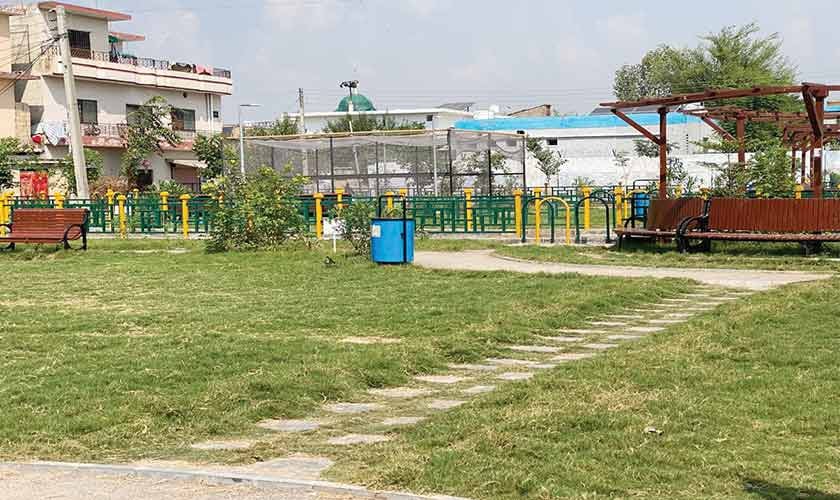Thousands of residents of Farash Town and James Town in the twin cities are celebrating as they now have access to clean drinking water. Alongside this vital resource, they have also learned useful skills such as reusing water and recharging the water table through rainwater harvesting techniques. This transformation is the result of a megaproject focused on water security.
The project was a collaborative initiative between the World Wildlife Fund (WWF)-Pakistan and the Australia-Pakistan Water Security Initiative, an Australian Aid-funded program aimed at strengthening cooperation between Australia and Pakistan on urban water resources management. The megaproject consists of a series of smaller projects, all scheduled to be operational by the end of December, with community participation playing a key role in their ongoing maintenance.
The primary goal of the initiative was to tailor, adopt, and demonstrate the Water Sensitive Cities approach in Pakistan, especially as Islamabad and Rawalpindi are among the cities forecasted to face water scarcity in the coming years.
### Focus on Two Neighbourhoods
The pilot project targeted two neighborhoods: James Town in Rawalpindi and Farash Town in Islamabad.
James Town is home to over 450 Christian households and has faced an acute water shortage. Farash Town, with a population exceeding 20,000, has similarly suffered from severe water scarcity and a declining water table.
Yasmin Bibi, a resident of Farash Town, shared her experience:
“Our area had a severe water shortage. The water table had also gone down. With the help of these projects, we were able to recharge the aquifer and get water from filtration plants installed at various places in the town.”
### Clean Water Access and Community Engagement
WWF installed seven water filtration plants — five throughout the locality and two in larger schools. These filtration plants now provide clean drinking water to approximately 24,500 people and are maintained by the community itself.
Imran Ali, another Farash Town resident, expressed his relief:
“This is a blessing for us. Earlier, many families would travel to the Chak Shahzad government filtration plant to get water, often hiring rickshaws to fetch it. Now, we have clean drinking water right at our doorstep.”
Before this intervention, water scarcity was so severe that those who could afford to were selling their properties and relocating. Imran adds,
“Now, with this project, our lives and priorities have changed. It is such a relief that we don’t have to go out of our way to get something as basic as water.”
### Project Components and Impact
Since its inception in April 2021, the WWF has implemented multiple measures in both neighborhoods:
– **James Town:**
– 275 rainwater harvesting systems (RWHS)
– 6 water recharge interventions
– 2 green spaces
– 2 large and 1 small filtration plants
– 15 solid waste skips
– 2 rain gardens
– Sewerage system for 450 houses
– **Farash Town:**
– 375 rainwater harvesting system interventions
– 4 ablution water reuse systems
– 31 recharge interventions
– 3 green spaces
– 3 communal RWHS
– 5 large and 2 small filtration plants
– 4 solid waste skips
– 2 rain gardens
Farah Nadeem, the project lead, highlights the importance of such initiatives:
“These projects are significant demonstrations of models creating awareness about water security. We have even incorporated water security issues into the curriculum of local schools as part of this initiative.”
Nadeem further comments,
“Through this project, WWF-Pakistan helped improve access to safe water and sanitation services for two disadvantaged communities, ensured community resilience to climate change and other water-related challenges, and built the capacity of key stakeholders regarding water use and conservation.”
### Addressing Pakistan’s Water Crisis
Pakistan is among the most water-stressed countries in the world, with an average per capita water availability of 964 cubic meters per year. Scientific studies indicate significant depletion of groundwater resources, exacerbating vulnerabilities caused by climate change. This situation impacts millions of people already struggling with shortages of water, food, health services, and energy security.
Projects like this megaproject are crucial steps toward securing sustainable water resources for vulnerable communities and ensuring a resilient future.
https://www.thenews.com.pk/tns/detail/1346830-covering-the-basics
